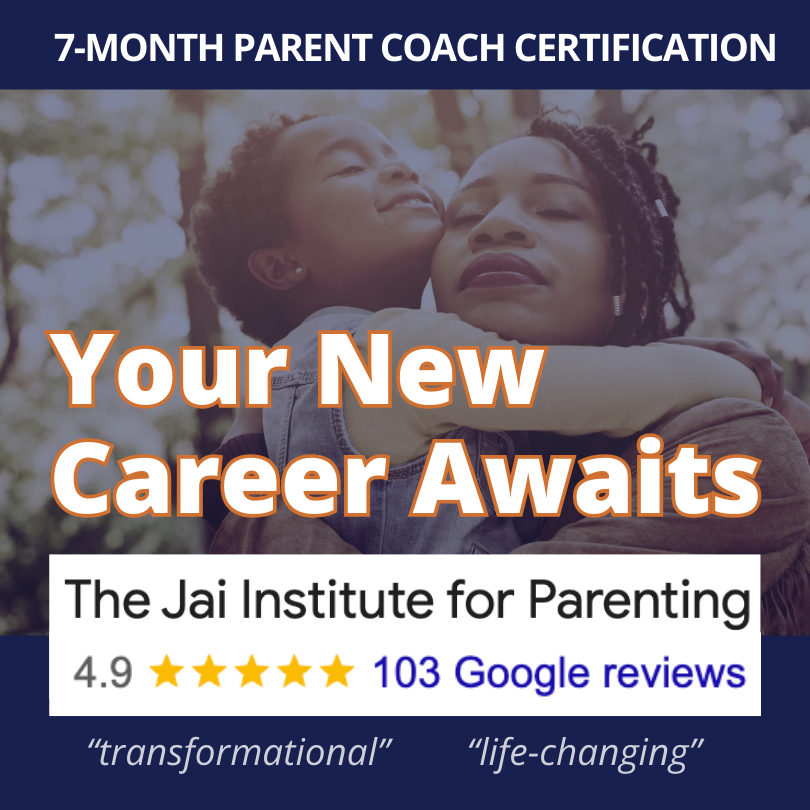Worried that Gentle Parenting Is the Wrong Choice?

In recent years, gentle parenting has gained significant popularity as an approach to raising children. This method, also known as peaceful parenting or conscious parenting, emphasizes empathy, respect, and understanding in parent-child relationships.
While the intentions behind
gentle parenting are admirable, some parents are understandably worried that this approach might not adequately prepare children for the challenges of the real world.
Let's explore some common misconceptions about gentle parenting and how, when misapplied, it could potentially harm your children's development.
We'll also discuss how to strike a balance between nurturing and setting boundaries and provide strategies for positive parenting that promote resilience and emotional well-being.
3 Ways Gentle Parenting Might Harm Your Kids (If Misunderstood)
1. You believe that the goal is to keep your child happy all of the time, avoid conflict, and protect them from failure or discomfort
One of the biggest
misconceptions about gentle parenting is that it means always keeping your child happy and shielding them from negative experiences. This misunderstanding can lead to overprotective parenting, which may hinder a child's ability to develop crucial life skills.
A study published in the Journal of Psychologists and Counselors in Schools found that overprotective parenting was associated with increased anxiety and decreased resilience in children. The researchers concluded that allowing children to face age-appropriate challenges is essential for developing problem-solving skills and emotional regulation.
Gentle parenting consequences should not mean an absence of consequences. Instead, it involves implementing logical and natural consequences in a calm, respectful manner. For example, if a child refuses to wear a coat, allow them to experience the natural consequence of feeling cold (within reason and safety limits). This approach teaches children to make informed decisions and learn from their experiences.
2. You're uncomfortable with your child's anger or upset when you try to set and maintain boundaries, limits, and rules
Another potential pitfall of misunderstood gentle parenting is the reluctance to
set and enforce boundaries due to discomfort with a child's negative reactions. However, boundaries are crucial for a child's sense of security and emotional development.
Dr. Dan Siegel, a clinical professor of psychiatry at the UCLA School of Medicine, emphasizes the importance of setting limits in his book "No-Drama Discipline." He argues that clear boundaries when combined with empathy and understanding, help children develop emotional self-regulation skills and a sense of safety.
Here at Jai, we advocate for Empowered Parenting. In our methodology, discipline doesn't mean avoiding discipline altogether. Instead, it involves setting clear expectations and consistently enforcing them with empathy and respect. When children push against boundaries, it's an opportunity for
parents to demonstrate emotional regulation and teach problem-solving skills.
3. You're unwilling to allow natural consequences to play out and rush in to fix, solve, and manage your children's (age-appropriate) challenges for them
The desire to protect our children from struggle is natural, but constantly intervening can prevent them from developing crucial life skills. A study published in the Journal of Child and Family Studies found that parental over-involvement was associated with decreased self-efficacy and increased anxiety in college students.
Conscious parenting discipline involves allowing children to face age-appropriate challenges and learn from them. This approach helps build resilience, problem-solving skills, and self-confidence. For instance, if a child forgets their homework, let them experience the natural consequence at school rather than rushing to bring it to them.
The Importance of Empowered Parenting
The key to effective parenting lies in finding a balance between nurturing and setting boundaries. Dr. Diana Baumrind's influential research on parenting styles identified authoritative parenting – which combines high responsiveness with high demandingness – as the most effective approach for raising well-adjusted children.
Empowered parenting, a concept that aligns closely with authoritative parenting, emphasizes the importance of both support and structure. This approach involves:
- Providing emotional support and understanding
- Setting clear expectations and boundaries
- Encouraging independence and problem-solving
- Modeling emotional regulation and resilience
By incorporating these elements, parents can create an environment that nurtures their child's emotional well-being while also promoting the development of crucial life skills.
How Can I Be a Better Parent to a Difficult Child?
Parenting a challenging child can be overwhelming, but adopting a conscious parenting approach can make a significant difference. Here are some strategies:
1. Practice empathy:
Try to understand the underlying reasons for your child's behavior. Often, difficult behavior is a form of communication.
2. Set clear boundaries: Establish consistent rules and consequences and enforce them calmly and respectfully.
3. Encourage emotional expression: Create a safe space for your child to express their feelings, even negative ones.
4. Focus on connection:
Prioritize quality time and positive interactions to strengthen your relationship.
5. Seek support:
Consider working with a conscious parenting coach to develop personalized strategies for your family.
How Do You Do Positive Parenting?
Positive parenting, which aligns closely with empowered parenting principles, focuses on building a strong, nurturing relationship with your child while also setting clear expectations. Here are some key elements of positive parenting:
1. Communicate clearly:
Use age-appropriate language to explain rules and expectations.
2. Offer choices: Give your child appropriate options to help them feel a sense of control and develop decision-making skills.
3. Use positive reinforcement: Focus on praising good behavior rather than only addressing misbehavior.
4. Practice
active listening:
Show your child that their thoughts and feelings are valued by giving them your full attention.
5. Model the behavior you want to see:
Children learn by example, so demonstrate the qualities you want to instill in them.
The Resilience Crisis: Understanding Today's Challenges
Recent studies have highlighted a concerning trend in children's mental health and resilience. The 2021 UNICEF report on the State of the World's Children found that approximately 13% of adolescents aged 10-19 have a diagnosed mental disorder.
Additionally, a study published in the Journal of Clinical Child & Adolescent Psychology reported a significant increase in anxiety and depression among children and adolescents over the past decade.
Several factors contribute to this decline in resilience:
1. Overprotective parenting:
As mentioned earlier, shielding children from all challenges can hinder their ability to develop coping skills.
2. Increased academic pressure:
High-stakes testing and competition for college admissions can create undue stress for children.
3. Digital overexposure:
Excessive screen time and social media use have been linked to increased anxiety and decreased face-to-face social skills.
4. Lack of unstructured play:
Over scheduling children with activities leaves little time for
free play, which is crucial for developing creativity and problem-solving skills.
What Parents Can Do: Providing Structure, Leadership, and Support
To address these challenges and promote resilience in children, parents can:
1. Encourage age-appropriate independence: Allow children to take on responsibilities and make decisions within safe boundaries.
2. Promote a growth mindset: Teach children that abilities can be developed through effort and learning from mistakes.
3. Prioritize outdoor play and physical activity: Regular exercise and time in nature have been shown to improve mental health and resilience.
4. Teach emotional regulation skills:
Help children identify and manage their emotions through techniques like deep breathing and mindfulness.
5. Foster social connections:
Encourage face-to-face interactions and involvement in community activities.
6. Set realistic expectations:
Help children set achievable goals and celebrate progress rather than focusing solely on outcomes.
7. Model resilience:
Share your own experiences of overcoming challenges and demonstrate healthy coping strategies.
In conclusion, empowered and gentle parenting, when properly understood and implemented, can be an effective approach to raising resilient, emotionally intelligent children. The key lies in finding a balance between nurturing and setting boundaries, allowing natural consequences to play out, and providing the support and guidance children need to navigate life's challenges.
By addressing common misconceptions and focusing on evidence-based strategies, parents can create an environment that promotes both emotional well-being and the development of crucial life skills. Remember, the goal of gentle parenting is not to shield children from all discomfort but to equip them with the tools they need to face life's challenges with confidence and resilience.
As a community, we need to be willing to look at the criticism that Gentle Parenting leads to entitlement and young adults who don't know how to advocate for themselves, make decisions and clean up their mistakes.
This is why effective Empowered Parenting requires us to do the work of personal growth and leadership because we have to let go of
the idea that Peaceful Parenting means that life is gonna be peaceful. That's simply not it.
Meet Your Author, Kiva Schuler
Jai Founder and CEO
Kiva’s passion for parenting stemmed from her own childhood experiences of neglect and trauma. Like many of her generation, she had a front row seat to witnessing what she did not want for her own children. And in many ways, Jai is the fulfillment of a promise that she made to herself when she was 16 years old… that when she had children of her own, she would learn to parent them with compassion, consistency and communication.
Kiva is a serial entrepreneur, and has been the marketer behind many transformational brands. Passionate about bringing authenticity and integrity to marketing and sales, she’s a sought after mentor, speaker and coach.
READ MORE:

Curious for more?













